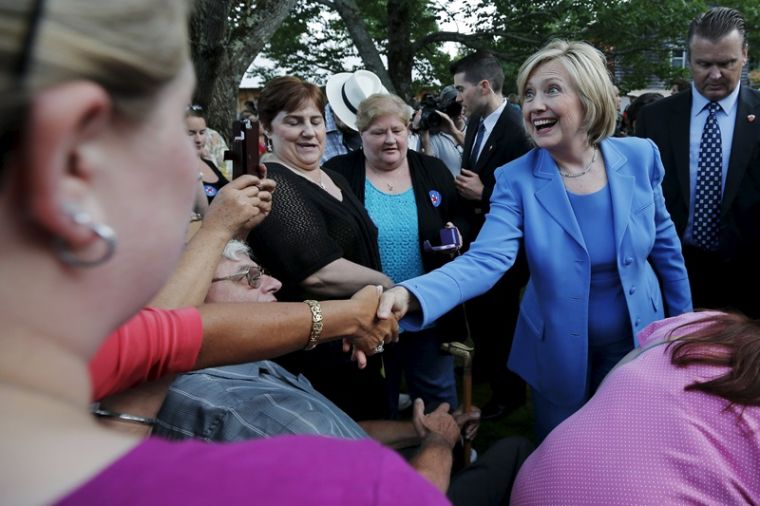Hillary Clinton to lose to Republican bet in 6 swing states if polls held today — survey

A survey commissioned this month by a pro-Republican group showed that Democratic party presidential frontliner Hillary Clinton would lose by a single-digit percentage to a generic Republican presidential nominee in six swing states if the elections were held today.
Clinton lagged behind the Republican nominee, 42-50 on percentage points, if the elections were held today, the survey showed.
Only 38 percent of voters in Colorado, Florida, Iowa, Nevada, Ohio and Virginia found as favourable the former Secretary of State, who worked alongside US President Barack Obama, according to pollster Vox Populi, which conducted the survey for American Crossroads. More than 50 percent found Clinton "unfavourable," while 8 percent said they were unsure.
If Clinton becomes the first US female president, only 12 percent of those polled said they would "much more likely" support her, compared to the 48 percent who said there would be "no difference."
Only 11 percent of the respondents in the swing states said Clinton "completely" shares their values, while 29 percent said she does "on most issues." However, 35 percent said "not at all."
The poll said 39 percent of the respondents "strongly agree" that "Hillary Clinton will say or do anything in order to get elected president," while 19 percent say they "somewhat agree." Those who "strongly disagree" comes close at third with 20 percent.
In terms of trust, only 16 percent "completely trust" her and 25 percent "somewhat trust" her, compared to the 42 percent who "completely distrust" her and the 14 percent who say they "somewhat distrust" Clinton.
On the 2012 terrorist attack on the US mission in Benghazi, Libya, 37 percent of the respondents thought Clinton was "definitely hiding" something about her actions during the crisis despite the request of the US House committee on the matter for her electronic correspondence to be turned over.
However, 31 percent of those polled said they "most closely identify" with Democrats, a slim margin from the 30 percent who say they identify as Republicans.











